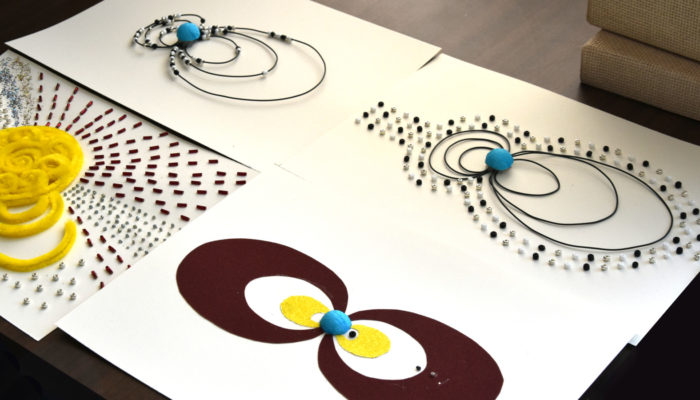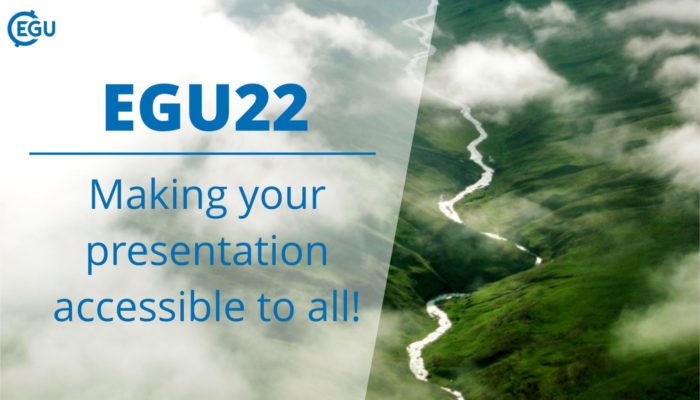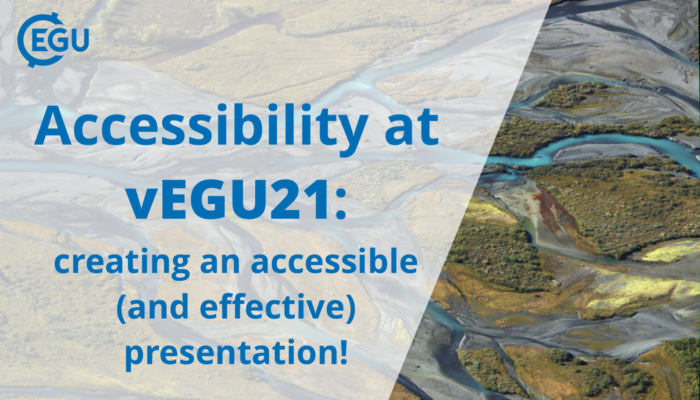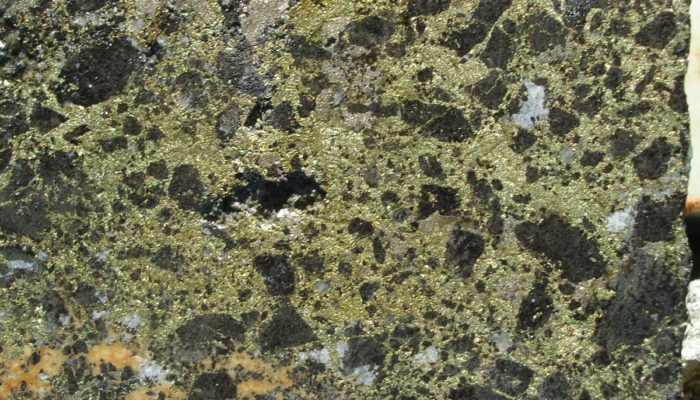We can all probably agree that the Northern Lights are one of the world’s most spectacular natural displays. But how do we share this beauty with children who are blind? How do we explain the processes behind the aurora creation to the visually impaired when all the illustrations of Earth’s magnetosphere are in 2D? The Northern Lights are just one of the consequences of ‘space weather’. Space weat ...[Read More]
How to EGU22: Making your presentation accessible to all!
The last couple of years have changed the way we communicate with each other – both in our professional and personal lives. The pandemic has inspired many of us to experiment with and embrace new digital ways of working, catching up with family and friends, networking, and more! This is also true for the way we share scientific research. In the digital world though, we’re sometimes mor ...[Read More]
Accessibility at vEGU21: creating an accessible (and effective) presentation!
Even before the global pandemic reshaped how we share our scientific research, presenting our results online has become more and more a normal activity for researchers around the world. Digital conferencing, remote presentations and pre-recorded talks shared over the internet have a lot of positives and negatives, not least of which is the ability to share your work with a wider audience than migh ...[Read More]
Colour deficient vision and the geosciences; just another way of looking at things
Like a reasonably large proportion of the population, I have colour vision deficiency (also known as colour deficient vision or colourblindness). I’m not going to get into the technical aspects of what this is like as they are covered well here and here, and you can do an Ishihara test, and other tests here, to check your own vision. The other reason I’m not going to discuss the technicalities of ...[Read More]




